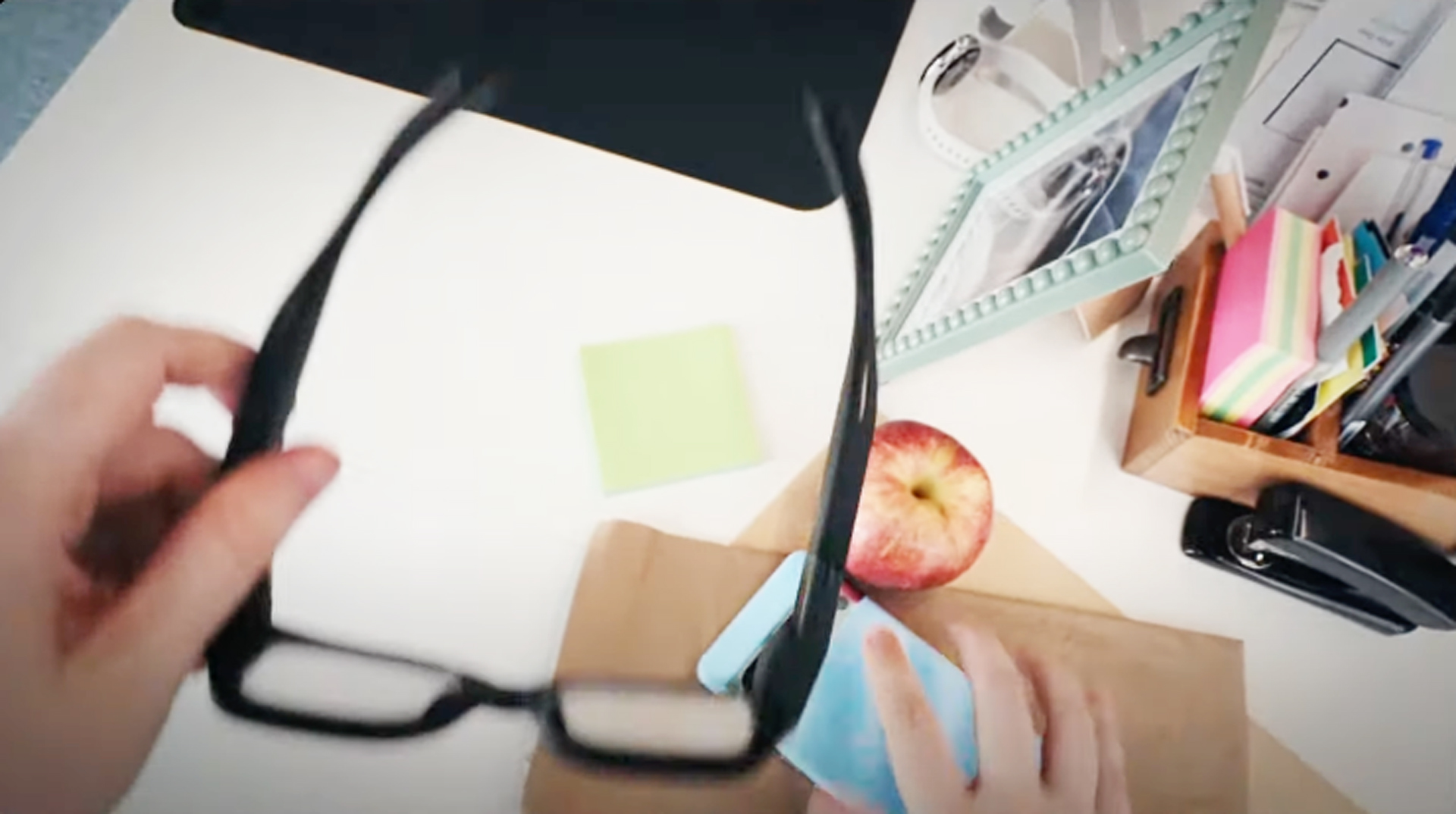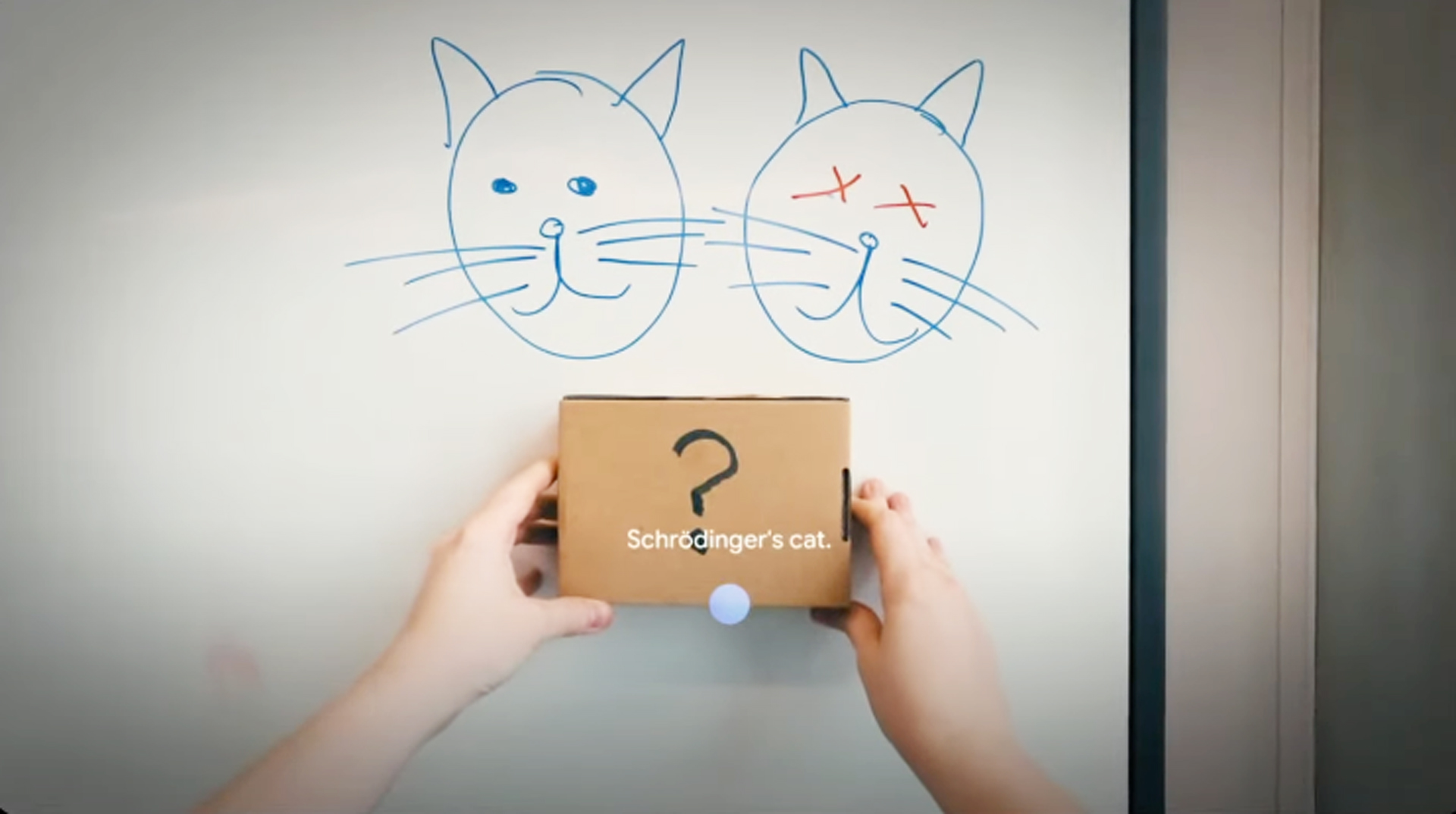Click here to visit Original posting
In a blink-and-you-missed-it moment, Google teased what appears to be its upcoming Smart Glasses project, one it may be building with the help of Samsung and, perhaps, even Qualcomm.
You can be forgiven for not hanging on until the very end of Google I/O's three-hour keynote to see a Gemini AI promotional video that cruised through many of the major announcements. It was a lot to digest but squeezed inside all the clips was a glimpse at a pair of glasses that were almost unmistakably smart.
There are already rumors that Google and Samsung are working on an XR/VR headset, but smartglasses like these, which would probably rely on Qualcomm's much smaller and more efficient Snapdragon AR2 chip, seem plausible, as well.
In the video (see the GIF below), someone picked up a beefy-looking pair of black-frame glasses. While we never see them on anyone's face, it's followed by what appears to be someone's point of view through the lenses.

The wearer asks what they're looking at, which appears to be a drawing on a whiteboard of a pair of cats: one alive and one dead. The AI replies in voice and with text we can see in front of us: "Schrödinger's cat."
Obviously, we don't know if the visual is real and if Google truly intends to deliver smart glasses with built-in AR displays. That's not something we're seeing from competitors like Meta (Ray-Bay Meta Wayfarers) and Amazon (Amazon Echo Frames).


Even so, Google has a rich history in AR glasses. Google Glass (RIP) featured a small heads-up display designed to overlay your real world. The display was too small, and everyone who wore them looked ridiculous, but that technology is now a decade old. It's 2024, and there are new possibilities for chips, AR, microdisplays, and the AI that can help power them.
Of course, that's the key to Google Smart Glass' potential success: integrated Gemini AI (like Gemini Nano) that can make them far more useful than Google Glass ever was.
We don't know anything more than what those few seconds of video tell us. Perhaps we'll have the full story tomorrow when Google launches Google I/O Keynote: The Return.